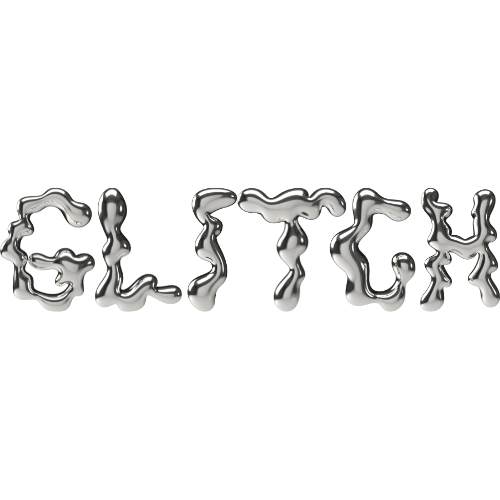The luxury fashion world, long known for its exclusivity and deliberate pace, is in the midst of a radical transformation—powered by AI, blockchain, and digital identity. At the Digital Couture Summit MFW SS’25, industry giants like Lacoste, Polygon, Lanvin Group, and Hermetik explored how digital innovations are dismantling and reshaping traditional concepts of craftsmanship, heritage, and consumer experience. From phygital collections and digital product passports to immersive tech, the summit spotlighted the disruptive force of cross-industry collaborations in pushing the boundaries of creativity and sustainability. As luxury brands embrace these rapid shifts, they’re unlocking bold new ways to connect with tech-savvy consumers while staying true to their artistic legacy. With key players like Vogue Business and Condé Nast setting the stage, the future of fashion is being redefined—and the Digital Couture Summit is leading the charge.
With powerhouses like Lacoste, Polygon, and Lanvin Group at the table, what disruptive forces are emerging in the luxury sector? How are these traditionally slow-moving giants adapting to the fast-paced digital transformation discussed at the summit?
“We are truly privileged to have the trust and support of the leaders in big tech and luxury space coming to Digital Couture Summit year after year. Luxury is being reshaped by AI, blockchain, and immersive tech. Giants are embracing these disruptions by partnering with innovators and integrating new technologies into their brands. At the summit, we saw how these luxury players are adapting by experimenting with digital fashion, DPP, phygital collections, blockchain-linked supply chains, and AI. It’s a balancing act, but they understand that to remain relevant, they need to evolve and connect with a new generation of digitally savvy consumers. Thus, brands like Lacoste and Lanvin Group were able to share their vision for the role of tech in the luxury space, whereas a tech provider, SMART DPP, announced its integration into the Polygon ecosystem supported by Kavana Lab.”
Vogue Business and Condé Nast have long been gatekeepers of fashion. How do you see their involvement at the summit evolving from storytelling to shaping the narrative of digital disruption within fashion?
“Vogue Business and Condé Nast are really catalysts for change. By participating at Digital Couture Summit MFW SS’25, they are helping shape how we talk about digital disruption, ensuring the narrative is as aspirational as it is innovative. Their involvement is a shift from traditional fashion storytelling to leading the conversation on how digital innovation is transforming the industry. They’re now at the forefront, guiding brands on how to blend fashion luxury traditional heritage with cutting-edge technology. We cannot wait to have these powerhouses coming back to FW’25/26 Edition in February to catch up on how innovation in the luxury space evolved since the last fashion week.”
Could you elaborate on the cross-industry collaborations seen at the summit, such as fashion brands aligning with blockchain tech giants like Polygon? How are these partnerships pushing the boundaries of creativity and consumer interaction?
“Since the first edition, Digital Couture Summit has opened doors to creativity that transcends physical limits, making fashion more interactive, immersive & sustainable. Making meaningful relationships and pushing the boundaries of tech in fashion and luxury with our trusted partners, sponsors, and friends has been our main goal from day one. At September’s Edition, SMART DPP, a one-click solution for digital product passports for traditional fashion houses, announced its long-awaited launch of SMART DPP. This marked the next milestone in the digital fashion space as SMART DPP is the first publicly known multi-chain digital product passport SaaS embracing blockchain technology. At Digital Couture Summit, SMART DPP’s CEO Alexandra Maslova announced its integration with Polygon PoS with the help of Kavana Lab, a company incubated within the Polygon ecosystem championing the use of innovative technologies to solve key problems for companies working in fashion, music, sports, and video entertainment.”
The summit tackles digital identity and immersive experiences, especially in the luxury space. How do these technologies disrupt traditional notions of exclusivity, craftsmanship, and heritage in luxury fashion?
“Digital identity and immersive tech redefine exclusivity by making luxury more accessible, yet personalized. While craftsmanship and heritage remain vital, these technologies allow brands to extend their legacy into new digital realms, maintaining their unique allure while reaching modern consumers. The idea of exclusivity is shifting from owning a rare, physical item to owning or experiencing something unique in both physical and digital spaces. Luxury brands can now offer unique digital passports linked with real physical products and phygital experiences that resonate deeply with tech-forward consumers. This specific topic was well-highlighted and explained by Digital Couture Summit MFW SS’25 headline speaker Marta Marta Pettenuzzo of Condé Nast Italia for the opening fireside chat.”
The discussion of AI content creation at the summit raises critical questions: How do you envision AI impacting the role of designers, and what risks do brands face in adopting AI-driven creativity without losing their artistic identity?
“AI can enhance designers’ creativity by automating repetitive tasks, giving them more space to innovate. Brands also need to ensure that AI-driven creations still reflect the brand’s DNA and artistic heritage. There’s also a delicate balance between efficiency and authenticity. AI should be a tool for creativity, as a helper and assistant, but not a replacement for the human touch that makes fashion an art form.”
Web3 technologies are set to upend traditional ownership models in fashion. How does the summit position these disruptions as the new normal?
“The summit showcases how Web3 tech is shifting fashion towards transparency. With phygital collections and digital passports, brands are offering consumers true ownership and authenticity. Hermetik, an emerging force in high-end fashion, blends prêt-à-porter with cutting-edge Web3 technologies. Known for its minimalist designs and meticulous attention to detail, Hermetik’s limited-edition collections, including the recently launched AW24 capsule, defy fast fashion and embrace ‘slow disruptive fashion.’ Each piece is a digital asset, authenticated through innovative Web3 integrations, making it exclusive in both the physical and digital realms. Narrowing down the gap between the digital world and traditional luxury space is exactly what Digital Couture Summit aims for with its semi-annual glamorous nights.”
Digital identity on-chain is emerging as a crucial element in the future of luxury. How do you foresee blockchain and digital passports redefining authenticity and consumer trust in the luxury market, particularly with upcoming EU regulations?
“Blockchain and digital passports are game-changers for authenticity. They provide a record of ownership, offering consumers full transparency. In a market where counterfeits are a growing concern, these technologies will ensure that luxury products come with traceable, verified histories. The earlier-mentioned SMART DPP multi-chain SaaS announcement and integration into the Polygon ecosystem with Kavana Lab support is a strategic decision also positioning SMART DPP at the forefront of compliance with the upcoming European Digital Product Passport Regulation, set to roll out in 2027 as part of the European Green Deal.”
Sustainability has long been a buzzword, but real disruption seems to come from tech solutions like Fiallo’s 3D-printed footwear and SEAMM’s SMART DPP launch. How do these innovations force the fashion industry to move beyond surface-level sustainability claims towards systemic change?
“Tech-driven innovations like 3D printing and digital product passports are challenging the industry to make sustainability more than just a buzzword. They demand systemic change by offering practical solutions that reduce waste, streamline production, and foster accountability. These technologies hold brands accountable, forcing them to back up their sustainability claims with tangible actions.”
With brands like Ecoolska, Fiallo, and Hermetik blurring the lines between digital and physical fashion, how does the summit spotlight the role of technology in transforming wasteful production models and embracing slow, disruptive fashion?
“Digital Couture Summit MFW SS’25 highlights how digital fashion and phygital designs are tackling overproduction and waste. By merging the digital and physical, brands can produce on-demand, reducing overstocks and embracing a slower, more thoughtful fashion model that disrupts traditional cycles. This approach encourages less wasteful production, allowing brands to create limited-edition digital experiences or products before physical production even begins.”
What key disruptions from this year’s summit do you expect will have the most lasting impact on the fashion system? Are we witnessing the dawn of a completely redefined fashion industry, and if so, what role does Digital Couture Summit play in rewriting that playbook?
“I truly believe that AI is undeniably the biggest game-changer today, and its benefits are revolutionizing the industry. AI is transforming the way fashion brands design, market, and connect with consumers. According to McKinsey, AI-driven campaigns can increase revenue by 28% and reduce marketing costs by at least 23%. Personally, I’m developing an AI creative agency that produces marketing video campaigns featuring real products of brands while preserving their unique DNA. This approach is ESG-friendly, while also cutting costs by 70-90% compared to traditional methods & delivering results faster.”
“In my opinion, the future of tech in fashion is all about smooth and effective connectedness between brands with rich heritage on one side and their loyal customers on the other side. Having a personalized experience, getting rewarded for your loyalty in an easier way, and getting closer to processes.”
Interviewed by Fernanda Ondarza, Editor in Chief at GLITCH Magazine
Words by Olska Green and Nikita Cikaluk from the Digital Couture Summit





